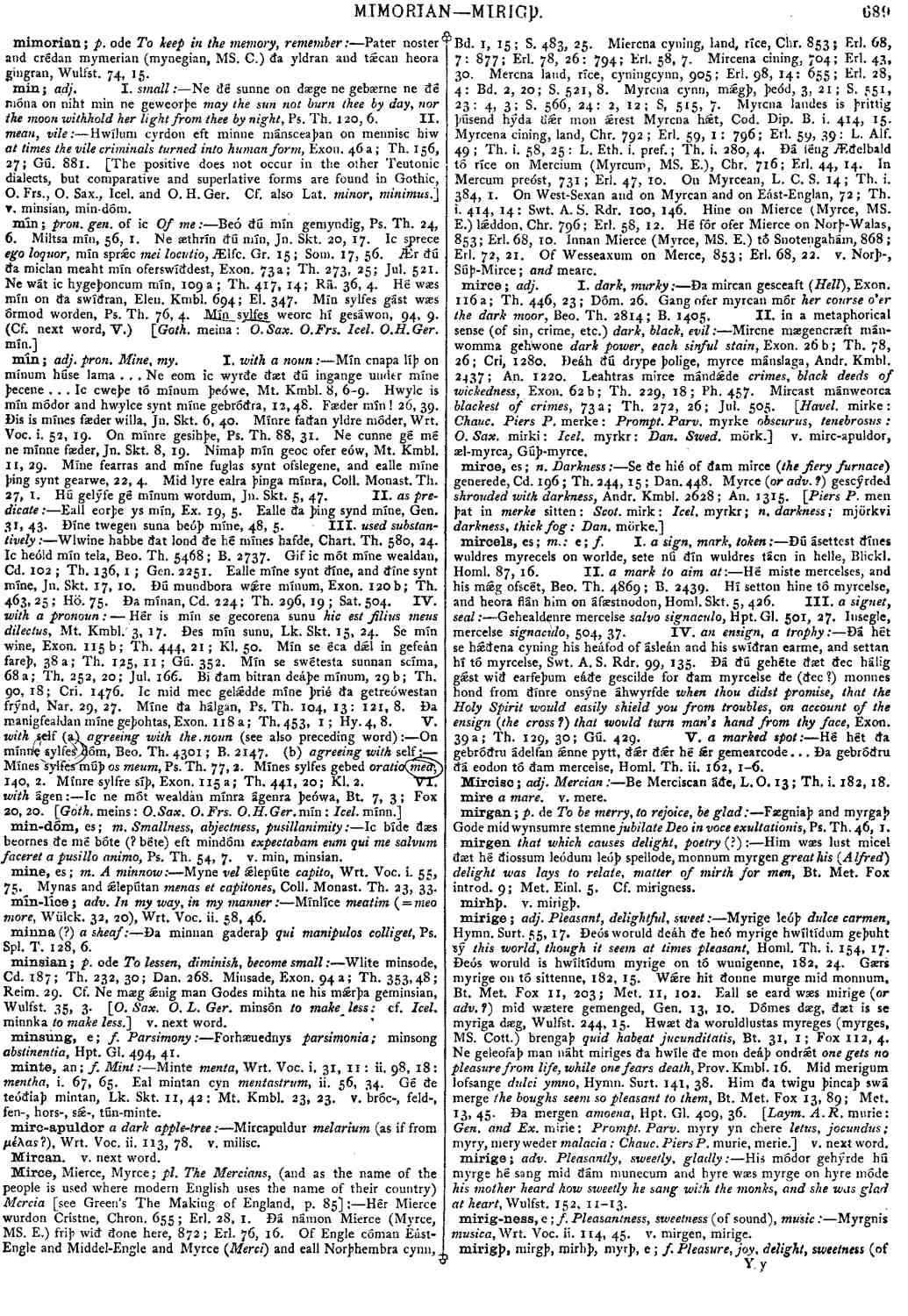mirigþ
- noun [ feminine ]
-
Dæg byþ myrþþ eádgum and earmum
day is a delight to rich and to poor,
- Runic pm. Kmbl. 344, 12 ;
- Rún. 24.
-
Wá him ðære mirigþe búte hé ðæs yfeles ǽr geswíce
alas for his delight, unless first he leave evil,
- Hy. 2, 6 ;
- Hy. Grn. ii. 281, 6.
-
Hé ádrǽfed wæs of neorxena wanges myrþe (
paradisum voluptatis
),- Gen. 3, 24.
-
For ðære mirhte (mergþe, MS. Cott.) ðæs sónes,
- Bt. 35, 6 ;
- Fox 168, 11.
-
On heofonan ríces mirhþe,
- Ælfc. T. Grn. 1, 11.
-
Myrhþe,
- Homl. Th. i. 58, 4.
-
Ða heorde tó heofonlícre myrhþe (myrþe, MS. B.) lǽdan,
- L. C. S. 85 ;
- Th. i. 424, 11.
-
Man byþ on myrhþe (
joyous
),- Runic pm. Kmbl. 343, 11 ;
- Rún. 20.
-
Ðú ðǽr náne myrhþe on næfdest ðá ðá ðú hié hæfdest
thou hadst no pleasure in them, when thou hadst them;
nec habuisse te in ea pulcrum aliquid,
- Bt. 7, 1 ;
- Fox 16, 17.
-
Ðín ríce ðǽr wé gemétaþ ealle mirhþe,
- Hy. 7, 31 ;
- Hy. Grn. ii. 287, 31.
-
Ðǽr (
heaven
)syndan mihta, mǽrþa and myrhþa.
- Wulfst. 5, 5: 167, 9: 28, 7.
-
Adam wearþ of myclum myrhþum bescofen tó hefigum geswincum,
- 104, 1.
Bosworth, Joseph. “mirigþ.” In An Anglo-Saxon Dictionary Online, edited by Thomas Northcote Toller, Christ Sean, and Ondřej Tichy. Prague: Faculty of Arts, Charles University, 2014. https://bosworthtoller.com/22922.
Checked: 1